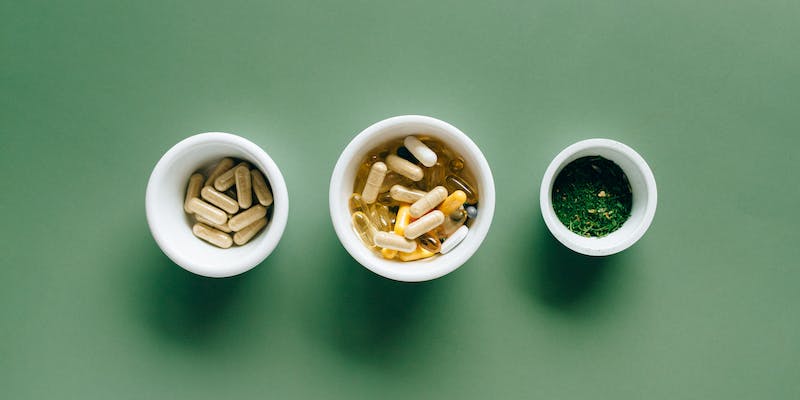How Postbiotics Could Improve Your Gut Health
Feb 12, 2024 By Nancy Miller
Most of us are familiar with probiotics, or foods that are high in beneficial bacteria, such as fermented foods, which may promote gut health. You may have heard of prebiotics, which are foods high in dietary fiber or complex carbohydrates that promote the growth of good bacteria in the large intestine. Nuts, legumes, and oats are popular prebiotic foods.
What about postbiotics? And how do they impact the health of our digestive tract? Continue reading to learn about the role and importance of postbiotics, how they may boost overall health in healthy people, and how a balanced, nutritious diet can enhance their benefits.
What are Postbiotics?
The byproducts of our intestinal microbiota are generally called postbiotics. In simple words, your body creates postbiotics following the breakdown of foods high in prebiotics and probiotics. Postbiotics may improve weight management by regulating metabolism, according to an emerging study.
These molecules are created during the digestion of dietary fiber, which is found in foods like fruits, vegetables, grains, and legumes by beneficial probiotic bacteria. The bacteria in your stomach depend on these postbiotic chemicals. In our stomach, these short-chain fatty acids are a food source for good probiotic bacteria.
Postbiotics are also useful in the suppression of harmful bacteria. For example, bacteriocins, which are specific substances produced by probiotic bacteria like Lactococcus lactis, can stop pathogens like Escherichia coli from colonizing the gut. Colonization resistance is the term which is used to describe this phenomenon.
Complex carbohydrates are broken down by gut microorganisms through a process called microbial fermentation. Particularly with plant-based diets high in polyphenols, fermentation by microbes produces the postbiotic phenylacetic acid. The growth of dangerous bacteria within the body can be inhibited by this postbiotic.
The Benefits of Postbiotics

The following are the health benefits of postbiotics. Let's discuss them in detail.
Reduce Overall inflammation
Long-lasting inflammation in the body, or chronic inflammation, is harmful to your health. Numerous medical conditions have been associated with it, such as metabolic disorders, CVD and IBD, obesity, type 2 diabetes, and cancer. Postbiotics have anti-inflammatory peptides and SCFAs that may be helpful in pain relief and overall health maintenance. Numerous postbiotics have been shown in studies to reduce inflammation, and they might be beneficial interventions for people who experience more intense and prolonged inflammatory reactions.
Manage Gut Conditions
They stimulate the development of a large and diverse gut microbiome and support the balance of beneficial bacteria in the gut. SCFAs, including butyrate, acetate, and propionate, are very valuable and essential for healthy digestive function. By providing nourishment to the intestinal lining cells, they enhance the function of the intestinal barrier and regulate inflammation. Postbiotics can help with better digestion and lessen problems like flatulence and irregularity by supporting a healthy gut.
Support Immunity
Your stomach contains a large amount of your immune system. Postbiotics have the ability to strengthen this defense and lower the risk of infection. Postbiotics contain immunomodulatory properties that support the immune system's normal functioning. They defend against infections, allergies, and autoimmune conditions by helping to regulate the immune response. Postbiotics can also have an impact on the production of peptides that fight microbes, which are essential for shielding the body from harmful germs.
For instance, the exopolysaccharides generated by one of the starter culture bacteria used to make yogurt might increase the activity of the body's natural killer cells. Exopolysaccharides made by Lactiplantibacillus plantarum, which was isolated from human breast milk, were utilized in a recent study to demonstrate similar beneficial benefits on the immune system.
Metabolic Health
Probiotics regulate and accelerate your metabolism. Short-chain fatty acids have the ability to increase insulin sensitivity, regulate blood sugar, and influence the release of hunger hormones. These advantages are critical for the management and avoidance of obesity and type 2 diabetes.
Improvements to Skin Health
According to recent research, postbiotics can enhance skin health. Certain postbiotics possess antibacterial properties that prevent the growth of germs that cause skin damage. A few could be helpful in enhancing the skin's ability to maintain its moisture barrier and lessen redness.
It has been demonstrated that postbiotics, such as certain peptides and growth factors, encourage collagen synthesis and skin rejuvenation. Postbiotics support the synthesis of new collagen fibres, which keep the skin flexible, firm, and full of life.
Prevents Obesity
A complex health problem, obesity is influenced by a number of variables, such as diet, lifestyle, and heredity. Recent studies have shown the potential contribution of the gut microbiome to the management and prevention of obesity. Through immune function modulation and reduction of inflammatory indicators, postbiotics may be able to lessen the low-grade inflammation characteristic of obesity.
In addition to controlling hunger and satiety, postbiotics may also have an impact on food intake and energy balance. Postbiotics may help avoid overeating and weight gain by encouraging feelings of fullness.
How to Boost Postbiotics
Having understood the significance of postbiotics, what are some strategies that maximize their ability to promote gut health? Following are a few easy ways:
Consume Extra Prebiotic Fiber
While fiber is a component of all prebiotics, not all fibers are prebiotics. Foods high in prebiotic fiber include garlic, onions, leeks, beans, lentils, peas, bananas, asparagus, barley, soybeans, and oats. Foods that include fibers that specific gut bacteria preferentially break down provide postbiotic byproducts and other health benefits.
Consume More Probiotic Foods
It's also advised to increase the quantity of fermented foods in your diet and diversify the meals in your digestive system. Try foods high in probiotics, such as sauerkraut kimchi. Foods that are heavily processed, rich in sugar, and bad fats might upset the natural balance of microorganisms in our digestive tracts. Whenever possible, choose complete, nutrient-dense foods.
Postbiotic Supplements

In some cases, taking probiotic supplements or eating foods that feed probiotics—known as prebiotics—may help preserve gut health, especially for those with specific digestive issues.
Conclusion
In summary, even though postbiotics are a relatively recent idea, their influence on gut health is evident. These organic fermentation byproducts have a great deal of potential to improve digestion, strengthen our immune systems, and promote balanced microbes. By adding items high in probiotics to our diet and embracing a healthy lifestyle, we may create an optimal environment in our gut and set ourselves up for a lifetime of good health.







